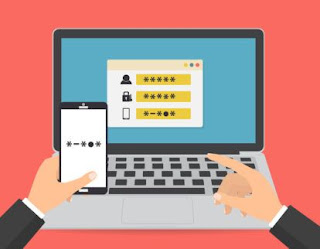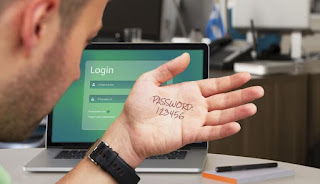What’s the Difference Between Data Breaches and Data Broker Sites Selling Information?
It may seem that it’s every couple of months that another major company suffers from a data breach, but what is contained in these breaches? In the information age, where data broker sites collect extensive records on people, is the data available anyway? Does knowing how to remove personal information from Google help? Here are the differences between data broker sites and data breaches and what you can do to keep your personal information private.
What Data Is Contained in Breaches vs Data Broker Sites?
Data broker sites generally collect public information on you. This includes your name, age, addresses, relationships, phone number, email address, photos, and social media accounts. It can also include the make and model of your car, your hobbies, and your occupation. Anonymous data may be collected too, including health statistics.
A data breach, meanwhile, can be of any data an entity collects from you. A credit card data breach from a major retailer will likely contain your credit card information, in part or whole. Data breaches are varied and could include information from account names and passwords, to Social Security numbers and health records. Each breach is different, and often the data is encrypted.
Who Buys the Data?
Anyone can buy information from data broker sites if they have the money, but the target audience is generally marketers looking for targeted ad information. Data breach information is often bought by bad actors looking to attempt fraud or identity theft. They may buy credit card information to attempt to use the card, for example. They may buy multiple sets of data, including information from data brokers, to try to piece together information about a person, and use it for social engineering to compromise more of your accounts.
How Is the Data Obtained?
Data broker sites have a plethora of ways to obtain information. They can pull from social media and public records, such as property or court records. Data broker sites can also collect information from your purchase history, both online and offline, and government records such as driver’s licenses, census data, birth certificates, marriage licenses, voter registration, and more. The companies that suffer data breaches collect your information directly from you. You may have created an account and supplied your credit card info to make a purchase, for example. When a data breach occurs, bad actors can get hold of this private information, including passwords and credit card numbers.
What Can You Do to Protect Your Data?
You can opt-out of data broker sites, though the process can be time-consuming if you plan to target multiple sites. Removal from Whitepages, for example, requires filling out an opt-out form and verifying via a phone call. Using a service such as DeleteMe can save you time, as a subscription means they’ll do the work for you.
Data breaches, as they are not all equal, are harder to protect against. It’s wise to check bank, credit, and credit card statements for anything unusual. When a breach is announced, change your passwords. Make sure passwords are different for each account and use strong passwords. Finally, only give out your Social Security number when absolutely necessary.
About DeleteMe
With more than 20 million consumer opt-outs to date, Boston-based DeleteMe sets a high standard in the information security and online privacy industries. Their expert privacy team uses tested strategies, proprietary technology, and an in-depth knowledge of opt-out and privacy policies to remove your personal details from data broker sites. They can help remove personal information from Google and from over 40 of the biggest data broker sites. A DeleteMe subscription ensures your personal information stays private year-round.
Learn more about keeping online information private at Joindeleteme.com
What Data Is Contained in Breaches vs Data Broker Sites?
Data broker sites generally collect public information on you. This includes your name, age, addresses, relationships, phone number, email address, photos, and social media accounts. It can also include the make and model of your car, your hobbies, and your occupation. Anonymous data may be collected too, including health statistics.
A data breach, meanwhile, can be of any data an entity collects from you. A credit card data breach from a major retailer will likely contain your credit card information, in part or whole. Data breaches are varied and could include information from account names and passwords, to Social Security numbers and health records. Each breach is different, and often the data is encrypted.
Who Buys the Data?
Anyone can buy information from data broker sites if they have the money, but the target audience is generally marketers looking for targeted ad information. Data breach information is often bought by bad actors looking to attempt fraud or identity theft. They may buy credit card information to attempt to use the card, for example. They may buy multiple sets of data, including information from data brokers, to try to piece together information about a person, and use it for social engineering to compromise more of your accounts.
How Is the Data Obtained?
Data broker sites have a plethora of ways to obtain information. They can pull from social media and public records, such as property or court records. Data broker sites can also collect information from your purchase history, both online and offline, and government records such as driver’s licenses, census data, birth certificates, marriage licenses, voter registration, and more. The companies that suffer data breaches collect your information directly from you. You may have created an account and supplied your credit card info to make a purchase, for example. When a data breach occurs, bad actors can get hold of this private information, including passwords and credit card numbers.
What Can You Do to Protect Your Data?
You can opt-out of data broker sites, though the process can be time-consuming if you plan to target multiple sites. Removal from Whitepages, for example, requires filling out an opt-out form and verifying via a phone call. Using a service such as DeleteMe can save you time, as a subscription means they’ll do the work for you.
Data breaches, as they are not all equal, are harder to protect against. It’s wise to check bank, credit, and credit card statements for anything unusual. When a breach is announced, change your passwords. Make sure passwords are different for each account and use strong passwords. Finally, only give out your Social Security number when absolutely necessary.
About DeleteMe
With more than 20 million consumer opt-outs to date, Boston-based DeleteMe sets a high standard in the information security and online privacy industries. Their expert privacy team uses tested strategies, proprietary technology, and an in-depth knowledge of opt-out and privacy policies to remove your personal details from data broker sites. They can help remove personal information from Google and from over 40 of the biggest data broker sites. A DeleteMe subscription ensures your personal information stays private year-round.
Learn more about keeping online information private at Joindeleteme.com




Comments
Post a Comment